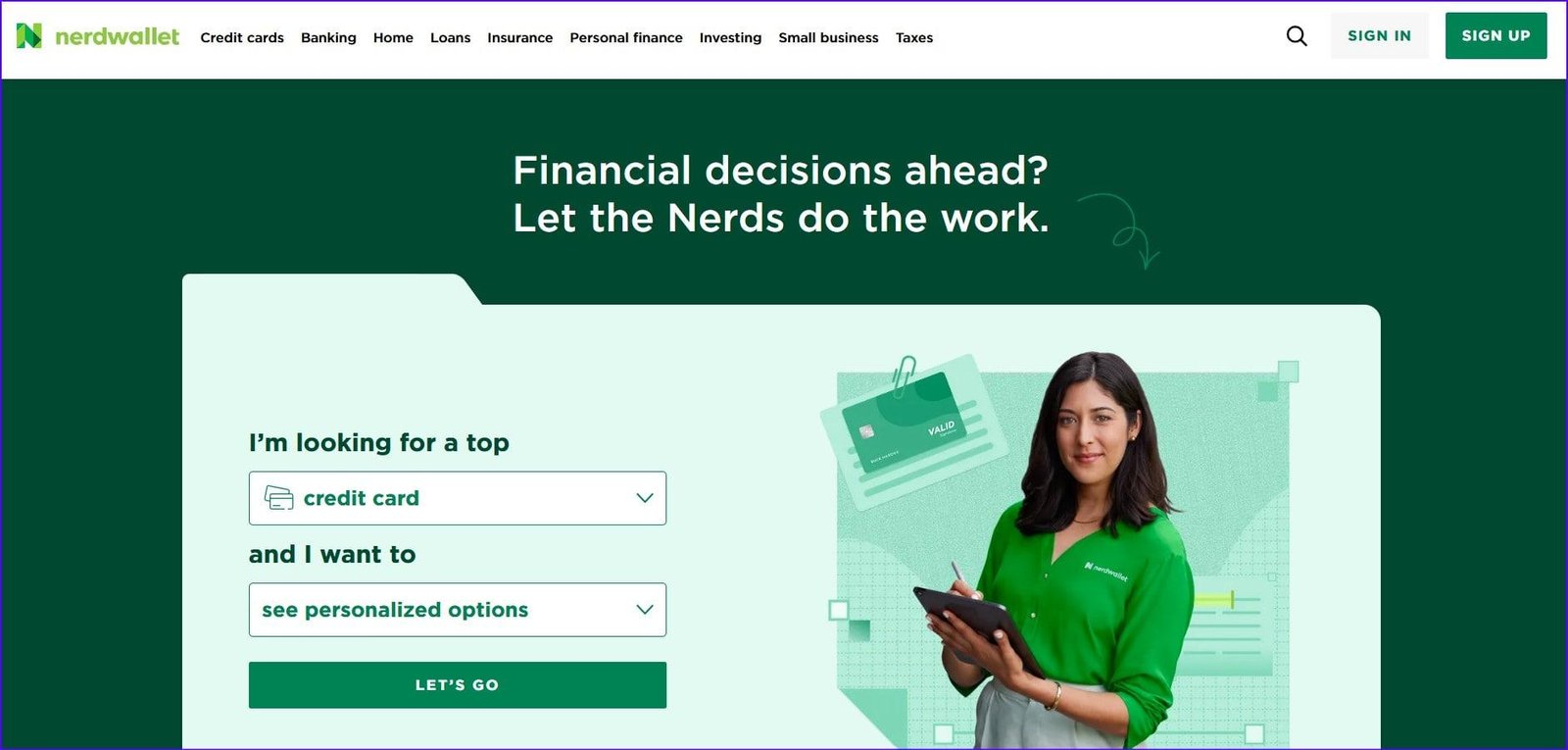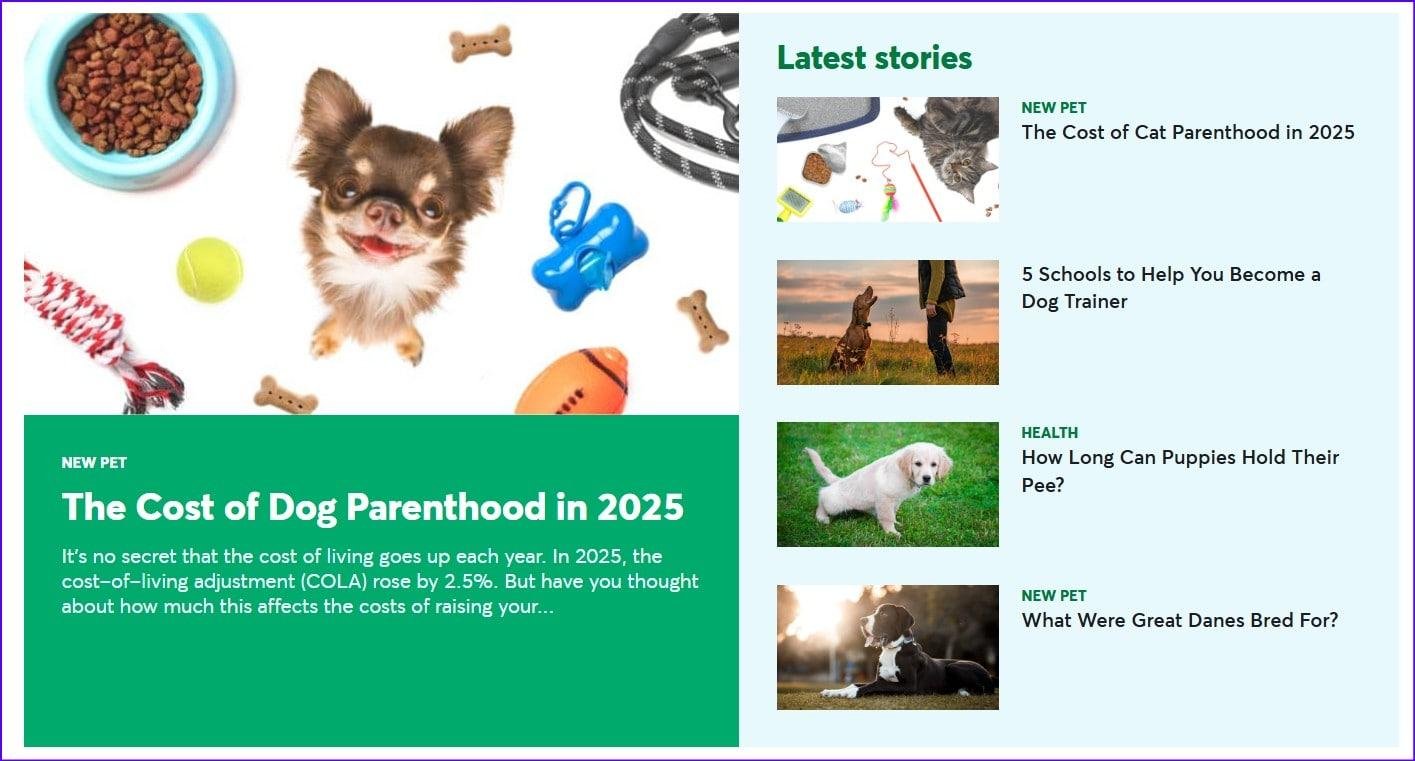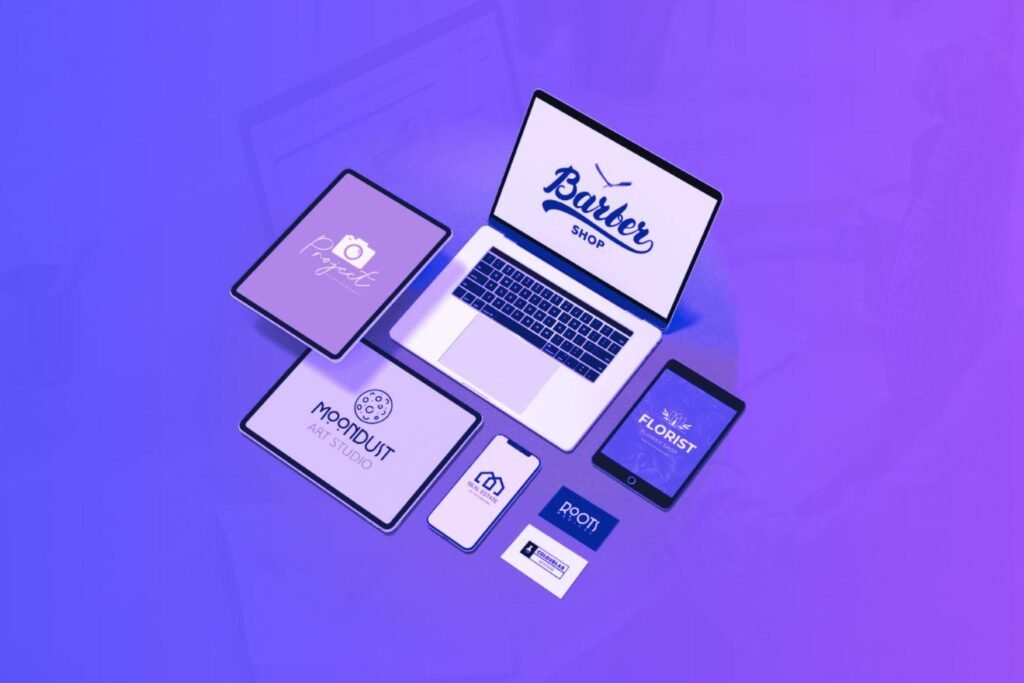There are countless ways to make affiliate marketing work for you. But with so many options, where do you start?
What niche should you pick? Should you promote physical products, digital courses, or subscription services? And how should you promote them?
The key is finding the right approach that aligns with your interests and audience.
In this guide, you’ll explore practical affiliate marketing ideas that can help you build a sustainable income stream.
From niche selection to content strategies, you’ll discover ways to maximize your efforts without feeling overwhelmed. Ready to dive in? Let’s break it down step by step.
Disclaimer: If you buy any products through links on this site, I may earn a commission. But it doesn't make any difference to your cost, and it helps me keep this blog running. So you could always read my articles for free.
Affiliate marketing niche ideas
Choosing the right niche is one of the most important decisions in affiliate marketing. A niche is simply a focused area within a broader industry.
The best ones have a combination of demand, profitability, and long-term potential. Here are some strong affiliate marketing niches you might want to consider.
Personal finance and investing
Money is always a hot topic. People are constantly looking for ways to save, invest, and grow their wealth, making personal finance a profitable affiliate niche. The demand is high because financial literacy is a lifelong journey, and new tools and strategies keep emerging.
A great example is NerdWallet, a successful affiliate website that earns millions by recommending credit cards, insurance, and investing platforms.

You don’t need to be a finance expert to start—you can focus on beginner-friendly content like budgeting tips, passive income ideas, or investment basics.
Affiliate programs to check out:
- Credit cards – Chase, American Express, and Discover offer commissions for new sign-ups.
- Investment platforms – Robinhood, Webull, and M1 Finance have referral programs.
- Budgeting apps – YNAB (You Need a Budget) and Personal Capital pay for referrals.
If you enjoy discussing money topics or have firsthand experience managing finances, this niche has long-term earning potential.
Health and wellness
People spend thousands every year on health, fitness, and self-care. Whether it’s weight loss, mental health, or home workouts, the health and wellness industry is massive.
According to Grand View Research, the global wellness market was valued at $4.4 trillion in 2022 and is still growing.
One of the best affiliate marketing ideas here is niche specialization. Instead of covering everything, you can focus on a specific area like plant-based diets, home fitness, or stress management.
A great example is Kayla Itsines, who built a multi-million dollar business promoting fitness programs and products.
Affiliate programs to check out:
- Fitness equipment – Bowflex and Peloton have affiliate programs.
- Health supplements – Thrive Market and iHerb offer commissions.
- Mental wellness apps – Headspace and Calm have referral bonuses.
If you’re passionate about health topics or have a personal fitness journey to share, this niche can be both rewarding and profitable.
Technology and gadgets
Tech is an ever-evolving industry with a huge audience. Whether it’s smartphones, laptops, or smart home devices, people constantly research before buying.
The demand for product reviews, comparisons, and how-to guides is high, making this a great niche for affiliate marketing.
A good example is The Wirecutter, a site owned by The New York Times that earns from affiliate links to Amazon and Best Buy. Even YouTubers like Marques Brownlee (MKBHD) make substantial income through tech product reviews.
Affiliate programs to check out:
- Amazon Associates – Commissions on millions of tech products.
- Best Buy Affiliate Program – Pays for electronics purchases.
- Software and subscriptions – Microsoft, Adobe, and VPN services have high commissions.
If you love testing gadgets or keeping up with tech trends, this niche offers endless content ideas.
Home improvement and DIY
More people are investing in home improvement, especially after the rise of remote work. Whether it’s remodeling, DIY projects, or smart home setups, homeowners are always searching for reliable products and guides.
A great example is This Old House, a website and YouTube channel that earns through affiliate links to home improvement tools and products.
You can focus on a sub-niche like budget-friendly renovations, smart home tech, or woodworking projects.
Affiliate programs to check out:
- Home Depot and Lowe’s – Commissions on tools and materials.
- Wayfair – Pays for furniture and home decor referrals.
- Smart home devices – Amazon and Best Buy offer commissions.
If you enjoy DIY projects or home design, this niche has strong long-term potential.
Parenting and baby products
New parents are always looking for advice and product recommendations. From baby gear to parenting hacks, this niche has a dedicated and engaged audience.
The baby care industry is worth over $73 billion globally, making it a high-demand space for affiliates.
An example is Lucie’s List, a popular blog that reviews strollers, car seats, and parenting essentials while earning through affiliate links. Content ideas include baby product reviews, parenting tips, or toddler-friendly recipes.
Affiliate programs to check out:
- Amazon Baby Registry – Commissions on baby gear and toys.
- Buy Buy Baby and Target – Affiliate programs for baby essentials.
- Subscription boxes – Lovevery and KiwiCo offer referral bonuses.
If you’re a parent or have experience with childcare, this niche is both meaningful and profitable.
Online learning and education
With the growth of remote work and self-paced learning, online education is booming. People are investing in skills like coding, digital marketing, and personal development, creating a great opportunity for affiliate marketers.
Websites like Skillshare and Udemy thrive on referrals from bloggers and YouTubers. You can focus on a niche like career development, language learning, or academic tutoring.
Affiliate programs to check out:
- Udemy and Coursera – Commissions for online course enrollments.
- Skillshare – Pays per new sign-up.
- Education software – Grammarly and Rosetta Stone have affiliate programs.
If you enjoy learning and sharing knowledge, this niche allows you to help others while earning commissions.
Sustainable living and eco-friendly products
More consumers are making eco-conscious choices, and businesses are responding. Whether it’s sustainable fashion, zero-waste products, or green energy solutions, this niche is growing fast.
A great example is The Good Trade, a blog that promotes ethical brands and sustainable living tips through affiliate marketing. Content ideas include eco-friendly product reviews, green lifestyle guides, or DIY sustainability hacks.
Affiliate programs to check out:
- EarthHero and EcoRoots – Commissions on sustainable products.
- Thrive Market – Pays for organic and eco-friendly grocery referrals.
- Solar and green energy brands – Tesla’s referral program for solar panels.
If you’re passionate about sustainability, this niche has long-term growth potential.
Gaming and esports
The gaming industry is worth over $200 billion, and with the rise of live streaming, esports, and gaming gear, there are plenty of affiliate opportunities.
Gamers constantly search for game reviews, hardware recommendations, and streaming setup guides.
Popular gaming affiliate sites like IGN and PC Gamer make money through links to gaming peripherals and digital game sales.
For such affiliate marketing ideas, you don’t need to be a pro gamer. Focusing on a specific genre, platform, or gaming accessories can work well.
Affiliate programs to check out:
- Razer and Logitech – Commissions on gaming gear.
- Humble Bundle and Green Man Gaming – Pays for digital game sales.
- Twitch Affiliate Program – Earn from referrals and subscriptions.
If you love gaming or tech, this niche offers endless content possibilities.
Travel and adventure
People love traveling, but they also want to save money and find the best experiences. The travel industry is massive, with millions searching for cheap flights, hotel deals, and travel gear recommendations every day.
A great example is Nomadic Matt, a successful travel blog that earns through affiliate links to travel services and products. You can focus on budget travel, luxury vacations, backpacking tips, or travel hacking.
Affiliate programs to check out:
- Booking.com and Expedia – Commissions on hotel bookings.
- Airbnb Affiliate Program – Earn from property bookings.
- Travel gear brands – REI and Samsonite offer commissions on luggage and accessories.
If you love exploring new places, this niche allows you to turn your experiences into income.
Pets and pet care
Pet owners spend thousands every year on food, grooming, and accessories. In the U.S. alone, pet industry spending reached $136 billion in 2022, making this a profitable affiliate marketing niche.
A great example is The Dog People by Rover, a blog that provides pet care advice and earns through affiliate links to pet products. You can focus on dog training, pet nutrition, or breed-specific advice.

Affiliate programs to check out:
- Chewy and Petco – Commissions on pet food, toys, and accessories.
- Rover – Pays for referrals to pet-sitting and walking services.
- BarkBox – Subscription box with a referral program.
If you’re a pet lover, this niche has a dedicated audience that trusts recommendations.
Fashion and beauty
Fashion and beauty are evergreen niches with strong affiliate potential. Whether it’s makeup tutorials, skincare routines, or clothing trends, people are always searching for the best products.
Influencers like Jackie Aina and Huda Kattan built successful businesses in this space through reviews and tutorials. You don’t need to be a beauty guru—you can focus on sustainable fashion, budget styling, or men’s grooming.
Affiliate programs to check out:
- Sephora and Ulta Beauty – Commissions on skincare and makeup products.
- Nordstrom and ASOS – Fashion retailers with affiliate programs.
- Subscription boxes – Ipsy and Stitch Fix offer referral bonuses.
If you enjoy fashion and self-care, this niche lets you share trends and style advice while earning commissions.
Digital marketing and entrepreneurship
Businesses and freelancers constantly look for ways to grow online. Topics like SEO, email marketing, social media, and online business strategies are in high demand, making this a strong niche.
Sites like Smart Passive Income by Pat Flynn earn by recommending digital marketing tools and courses. You can focus on freelancing, blogging, or e-commerce.
Affiliate programs to check out:
- Bluehost and SiteGround – Commissions for web hosting referrals.
- Semrush and Ahrefs – SEO tool affiliate programs.
- ConvertKit and Mailchimp – Pays for email marketing software referrals.
If you enjoy online business topics, this niche has high-paying affiliate programs.
Self-improvement and productivity
People are always looking for ways to improve their habits, mindset, and productivity. Whether it’s goal setting, time management, or personal growth, this niche attracts a loyal audience.
A great example of affiliate marketing ideas in this niche is James Clear, author of Atomic Habits, who monetizes through affiliate recommendations for books and courses. You can focus on motivation, mindfulness, or work-life balance.
Affiliate programs to check out:
- Audible and Blinkist – Commissions on book subscriptions.
- Notion and Evernote – Productivity tool referral programs.
- MasterClass and Mindvalley – Personal development course affiliates.
If you’re passionate about self-improvement, this niche offers endless content opportunities.
Food and cooking
Food is a universal interest, and many people look for recipes, meal plans, kitchen gadgets, and dietary tips online. Whether it’s home cooking, meal prepping, or specialty diets like keto and veganism, this niche has strong affiliate potential.
A great example is Minimalist Baker, a food blog that earns through affiliate links to kitchen tools, cookbooks, and specialty ingredients. You can focus on budget-friendly meals, gourmet recipes, or nutrition-based cooking.
Affiliate programs to check out:
- Thrive Market and Whole Foods – Commissions on organic and specialty ingredients.
- Blue Apron and HelloFresh – Meal kit referral programs.
- Amazon Associates – Earn on kitchen gadgets and cookware.
If you love cooking or experimenting with recipes, this niche has an engaged and loyal audience.
Cars and automotive accessories
Car enthusiasts and everyday drivers are always looking for vehicle maintenance tips, product recommendations, and accessories to enhance their driving experience. This niche includes car reviews, DIY repairs, and aftermarket modifications.
A great example is ChrisFix, a YouTuber who teaches car repair and maintenance while earning through affiliate links to tools and parts. You can focus on budget car mods, electric vehicles, or road trip gear.
Affiliate programs to check out:
- Advance Auto Parts and AutoZone – Commissions on car parts and accessories.
- Tire Rack and Michelin – Affiliate programs for tires and wheels.
- Car rental and insurance – Hertz and Geico offer referral programs.
If you’re passionate about cars or have experience with vehicle maintenance, this niche offers long-term monetization opportunities.
Affiliate marketing product ideas
Finding the right product to promote can make or break your affiliate marketing success. You want products that are in demand, offer good commissions, and provide real value to your audience. Here are some strong product ideas for affiliate marketing.
Software and digital tools
Software is one of the best affiliate product categories because companies offer recurring commissions. Unlike physical products, digital tools don’t require inventory or shipping, making them highly profitable for businesses—and for you as an affiliate.
Take Semrush, an SEO tool that helps businesses rank higher on Google. It has an affiliate program that pays up to 40% recurring commission per customer, meaning you earn every time they renew their subscription.
Another example is Canva, a popular design tool that pays affiliates up to $36 per Pro subscription signup. Other high-paying software affiliate programs include:
Web hosting – Bluehost, SiteGround, and WP Engine offer commissions from $50 to $200 per referral.
Email marketing tools – ConvertKit and Mailchimp pay affiliates for new subscribers.
VPN services – NordVPN and ExpressVPN pay 30-40% commissions per sale.
If you’re into tech, digital marketing, or business tools, promoting software can be a great long-term strategy.
Subscription boxes
Subscription boxes are a growing industry because they provide convenience and personalization. People love getting curated products delivered monthly, whether it’s snacks, beauty items, or fitness gear. This makes them a great product for affiliate marketing.
A great example is BarkBox, a dog subscription box that delivers treats and toys to pet owners. They pay affiliates $10-$18 per sign-up, and since it’s a subscription, customers stick around, leading to consistent earnings.
Other high-paying subscription box affiliate programs include:
HelloFresh – A meal kit service that pays up to $20 per referral.
Dollar Shave Club – A grooming subscription that offers commission on new sign-ups.
FabFitFun – A beauty and lifestyle box that pays affiliates for every customer they refer.
If you have a niche audience, whether in food, beauty, or lifestyle, subscription boxes can be a great fit for your affiliate strategy.
High-end electronics and gadgets
Tech gadgets have high demand and offer solid commissions, especially for big-ticket items. People often research before buying expensive electronics, making detailed reviews and comparisons valuable in affiliate marketing.
For example, Apple’s MacBooks and iPads have an affiliate program through Amazon and Best Buy, offering up to 5% commission per sale. While the percentage might seem low, a single MacBook purchase ($1,000+) could still earn you $50+ in commissions.
Other profitable tech affiliate programs include:
Gaming gear – Razer, Logitech, and Corsair offer commissions on keyboards, headsets, and mice.
Smart home devices – Amazon Echo, Google Nest, and Ring doorbells have affiliate programs.
Streaming services – Hulu, Disney+, and Netflix pay for new subscriber referrals.
If you love testing or talking about tech, this niche offers a steady stream of product launches to promote.
Online courses and educational programs
With the rise of online learning, courses and training programs are a great product for affiliate marketing. Many people want to improve their skills, switch careers, or gain certifications, making education a high-demand niche.
A great example is Udemy, which offers courses on everything from coding to photography. Their affiliate program pays up to 15% commission per course sale. Another option is MasterClass, where top experts like Gordon Ramsay and Serena Williams teach skills, with commissions of up to 25% per sale.
Other education affiliate programs include:
Coursera – Pays affiliates for course and degree enrollments.
Skillshare – Offers recurring commissions for premium memberships.
LinkedIn Learning – Pays for subscriptions to professional courses.
If you enjoy sharing knowledge or helping others learn, online courses are a solid affiliate product.
Fitness equipment and workout gear
Health and fitness are massive industries, and people constantly look for exercise equipment, gym accessories, and workout programs. Whether it’s home workouts, weightlifting, or yoga, there’s an affiliate opportunity.
For example, Bowflex offers a commission of up to 7% on fitness equipment, which can be a big payout considering some machines cost over $1,000. Similarly, Peloton has an affiliate program for their exercise bikes and treadmills.
Other fitness-related affiliate programs include:
Nike and Adidas – Commissions on workout apparel and shoes.
MyProtein and GNC – Pay for referrals on supplements and nutrition products.
Fitbit and Garmin – Affiliate programs for fitness trackers and smartwatches.
If you’re into fitness, these affiliate marketing ideas can monetize your expertise and recommendations.
Home office and remote work products
With more people working from home, there’s a high demand for ergonomic office furniture, tech gadgets, and productivity tools. Whether it’s standing desks, noise-canceling headphones, or productivity apps, this is a growing market.
For example, FlexiSpot, a brand specializing in standing desks, pays up to 10% commission per sale. A single referral for a $500 desk can earn you $50. Logitech and Bose also have affiliate programs for office accessories like keyboards, webcams, and headphones.
Other high-demand remote work products include:
Bluehost and Wix – Web hosting services for freelancers and entrepreneurs.
Zoom and Slack – Software referral programs for remote teams.
Ergonomic chairs – Herman Miller and Autonomous offer commissions on office furniture.
If you’ve experienced remote work, sharing useful recommendations can help others while earning commissions.
Luxury and designer fashion
Luxury brands have high price points, meaning even small commissions can result in big earnings. People actively research designer handbags, high-end watches, and premium accessories before buying, making this a lucrative affiliate niche.
A great example is Nordstrom’s affiliate program, which pays up to 11% per sale on luxury fashion. If someone buys a $1,000 Gucci bag, you could earn $110. Net-a-Porter and Farfetch also offer commissions on designer brands.
Other luxury fashion affiliate programs include:
Rolex and Omega – High-end watch brands with referral programs.
Saks Fifth Avenue and Bloomingdale’s – Commissions on luxury fashion items.
Louis Vuitton and Prada – Some high-end brands partner with exclusive affiliate networks.
If you have an eye for fashion and enjoy reviewing or styling luxury pieces, this niche offers premium affiliate earnings.
Eco-friendly and sustainable products
Sustainability is becoming a top priority for many consumers. People are actively searching for zero-waste products, reusable items, and ethical brands, making this a growing affiliate opportunity.
For example, EarthHero, an online marketplace for sustainable goods, offers up to 10% commission on eco-friendly products. Another example is Blueland, which sells plastic-free cleaning supplies and has a strong affiliate program.
Other sustainable affiliate programs include:
Thrive Market – Commissions on organic and sustainable groceries.
Pela Case – Eco-friendly phone cases with an affiliate program.
Allbirds and Patagonia – Sustainable clothing brands with referral commissions.
If you care about sustainability, this niche lets you promote ethical products while earning commissions.
Outdoor and adventure gear
Camping, hiking, and outdoor sports are popular hobbies, and people frequently look for gear recommendations before making purchases. Outdoor products often have high price points, making them ideal for affiliate marketing.
For example, REI’s affiliate program offers up to 5% commission on camping gear, backpacks, and outdoor apparel.
High-ticket items like kayaks, tents, and bikes can bring in significant earnings per sale.
Other outdoor affiliate programs include:
The North Face and Patagonia – Commissions on adventure apparel.
GoPro – Pays for referrals on action cameras and accessories.
Bass Pro Shops and Cabela’s – Affiliate programs for fishing, hunting, and outdoor gear.
If you’re into outdoor activities, this niche allows you to recommend gear you actually use.
Dating apps and relationship coaching
Online dating has become the norm, and many people are willing to pay for premium dating apps, relationship advice, and coaching programs. This makes it a unique but profitable affiliate niche.
For example, eHarmony’s affiliate program pays up to $75 per referral for premium subscriptions.

Match.com and Zoosk also offer commissions for new sign-ups. Other dating and relationship affiliate programs include:
Relationship coaching courses – Programs that help people with dating confidence.
Subscription-based dating apps – Bumble and EliteSingles have referral programs.
Gift ideas for couples – Experience gift brands like Tinggly and Virgin Experience Days pay affiliates for referrals.
If you enjoy relationship topics, this niche provides steady affiliate opportunities with high commissions.
Affiliate marketing platform ideas
Affiliate marketing is all about promoting products and earning commissions when people buy through your referral links. But where should you share these links?
Picking the right platform can impact your success by helping you reach the right audience and drive conversions. Here are some strong platform ideas for affiliate marketing.
Blogging and niche websites
Blogging is one of the most effective long-term platforms for your affiliate marketing idea. A blog allows you to create in-depth product reviews, comparison articles, and tutorials that rank on Google and attract organic traffic.
A great example is The Wirecutter, a product review site acquired by The New York Times. They built trust by testing and reviewing products, earning commissions from Amazon Associates and other affiliate programs.
Bloggers like Pat Flynn (Smart Passive Income) and Michelle Schroeder-Gardner (Making Sense of Cents) also make six-figure incomes through affiliate marketing.
Why blogging works:
SEO benefits – A well-optimized article can drive traffic for years.
Evergreen content – Unlike social media, blog posts don’t disappear.
Higher trust – People prefer reading detailed reviews before buying.
If you enjoy writing and want a long-term strategy, blogging is a solid platform for affiliate marketing.
Related: How to start a blog
YouTube and video content
YouTube is a powerful platform because people love watching product reviews and tutorials before making purchases. Video content builds trust and engagement, making it easier to convert viewers into buyers.
For example, Marques Brownlee (MKBHD) reviews tech gadgets and earns commissions through Amazon Associates and brand partnerships. Similarly, fitness YouTubers like Athlean-X and Chloe Ting recommend workout gear, earning affiliate income from products like resistance bands and protein supplements.
Why YouTube works:
Visual demonstrations – People want to see how products work.
High engagement – Video builds a stronger connection with viewers.
Multiple revenue streams – You can earn from affiliate links, ads, and sponsorships.
If you’re comfortable on camera and enjoy reviewing products, YouTube is a great affiliate marketing platform.
Social media and community-driven platforms
Social media platforms like Instagram, TikTok, and Facebook provide a fast way to promote affiliate products. Short-form content, such as reels, TikToks, and Instagram stories, can quickly go viral and generate commissions.
For example, influencers like Tori Dunlap (Her First $100K) use Instagram to share financial advice and promote affiliate links for budgeting apps and investing platforms. On TikTok, creators like Amazon Finds showcase trending products, earning commissions through Amazon’s influencer program.
Why social media works:
Fast engagement – Content reaches a large audience quickly.
Direct interaction – Followers can ask questions before buying.
Great for trends – Trending products go viral fast.
If you enjoy short-form content and engaging with an audience, social media is an effective way to earn through affiliate marketing.
Email newsletters and list-building
Email marketing is one of the most effective affiliate marketing platforms because you’re promoting products directly to people who trust you. Unlike social media, where algorithms control your reach, an email list gives you direct access to your audience.
A great example is Tim Ferriss, author of The 4-Hour Workweek, who runs a popular newsletter recommending books, tools, and software—many of which include affiliate links. Similarly, bloggers like Ryan Robinson (RyRob.com) send weekly emails promoting hosting services like Bluehost and other business tools.
Why email marketing works:
Higher conversions – Email subscribers are more likely to buy.
Direct communication – You own your audience, not a social media platform.
Personalization – You can segment lists and recommend specific products.
If you enjoy writing and building relationships with your audience, an email newsletter is a powerful affiliate marketing platform.
Podcasting and audio content
Podcasting is growing rapidly, and many podcasters successfully monetize through affiliate marketing. Listeners often trust podcast hosts, making affiliate recommendations more effective than traditional ads.
For example, take Andrew Warner’s Mixergy. In this affiliate marketing idea, he interviews entrepreneurs and promotes business-related software through affiliate links.
Why podcasting works:
Strong audience trust – Listeners often tune in weekly, building loyalty.
Less competition – Podcasting is not as saturated as blogging or YouTube.
Long-form content – You have more time to explain a product’s benefits.
If you enjoy speaking and storytelling, a podcast can be a great platform for affiliate marketing.
Online courses and memberships
If you have expertise in a subject, creating an online course or membership site can be an effective way to integrate affiliate marketing. You can recommend related tools, books, or software that help students succeed.
For example, Graham Cochrane, founder of The Recording Revolution, teaches music production and recommends affiliate products like microphones and editing software. Similarly, Amy Porterfield, a digital marketing expert, promotes tools like Kajabi and Leadpages in her courses.
Why courses and memberships work:
Highly targeted audience – People trust your recommendations.
High earning potential – You can combine course sales with affiliate commissions.
Evergreen content – Courses can generate passive income over time.
If you like teaching and guiding others, this platform combines education and affiliate marketing for long-term success.
Online forums and niche communities
Building or participating in online forums and niche communities is a great way to drive affiliate sales. People trust recommendations from engaged communities, and well-placed affiliate links in discussions can lead to conversions.
A great example is Reddit, where subreddits like r/Photography and r/PersonalFinance often discuss gear and tools. Users who provide helpful insights can include affiliate links in resource lists or guide people to a personal blog or YouTube channel with affiliate content.
Similarly, Facebook Groups dedicated to specific hobbies (like gaming, investing, or DIY projects) allow members to share product recommendations.
Why forums and communities work:
High engagement – Members actively seek recommendations.
Niche audiences – You reach people already interested in the products.
Trust-based marketing – Personal experiences and discussions feel more authentic.
If you enjoy community-building and discussions, this platform is a great way to earn affiliate commissions.
Mobile apps and tools
Creating a mobile app or tool that provides value while integrating affiliate links can be a smart, scalable affiliate marketing strategy. People use apps daily, and you can monetize through referrals without actively promoting products.
For example, Honey, a browser extension that finds coupon codes, earns affiliate commissions when users shop at partner stores.
Similarly, Rakuten (formerly Ebates) offers cashback deals and earns commissions through affiliate partnerships with major retailers.
Other examples include:
Personal finance apps – Budgeting apps that recommend bank accounts, credit cards, or investment platforms.
Fitness apps – Apps promoting affiliate links for supplements, workout gear, or training programs.
Travel apps – Hotel booking apps that earn commissions from Expedia or Airbnb.
Why mobile apps work:
Scalability – Once built, apps generate passive affiliate income.
Built-in engagement – Users return to the app regularly.
Seamless monetization – Affiliate links can be naturally integrated into the user experience.
If you have technical skills or want to collaborate with a developer, an affiliate-based app can be a long-term passive income stream.
Ebooks and guides
Writing an ebook or downloadable guide can be a highly effective way to promote affiliate products. People often download ebooks for in-depth knowledge, and strategically placed affiliate links can drive conversions.
For example, bloggers like Nick Loper (Side Hustle Nation) offer free ebooks on making money online while recommending affiliate services like Bluehost for website hosting. Similarly, travel bloggers create destination guides that include affiliate links to flights, hotels, and travel gear.
Why ebooks work:
Evergreen content – A well-written guide can generate income for years.
Authority-building – An ebook establishes you as an expert in your niche.
Lead generation – You can collect emails while earning affiliate commissions.
If you enjoy writing and want a passive way to earn affiliate income, an ebook or guide can be a highly effective platform.
Livestreaming and webinars
Livestreaming and webinars provide an interactive way to promote affiliate products. Viewers can ask questions in real time, making it easier to address concerns and increase conversions.
For example, Amazon Live influencers showcase products and earn commissions through Amazon Associates.
Tech reviewers on Twitch and YouTube Live often demonstrate gadgets, like new gaming laptops or cameras, while dropping affiliate links in the chat or video description.
Similarly, business coaches host webinars promoting software tools like ClickFunnels or ConvertKit.
Why livestreaming works:
Real-time engagement – Viewers can ask questions and get instant answers.
Demonstration-based selling – Showing a product in action builds trust.
Limited-time offers – Promoting discounts or bonuses can drive quick sales.
If you’re comfortable speaking live and enjoy engaging with an audience, livestreaming is a great affiliate marketing platform.
Pinterest and visual content marketing
Pinterest is an underrated but highly effective platform for affiliate marketing ideas, especially for niches like home décor, fashion, fitness, and DIY projects.
Users actively search for inspiration and product recommendations, making it an ideal place to include affiliate links in pin descriptions or direct traffic to a blog or YouTube channel.
For example, bloggers like Elna Cain (Twins Mommy) use Pinterest to drive traffic to their affiliate-based blog posts. Affiliate marketers in the home and lifestyle niche pin product roundups, linking to furniture, gadgets, or organizational tools.
Why Pinterest works:
Long-lasting content – Pins can drive traffic for months or even years.
High buyer intent – Users actively look for recommendations.
Easy automation – You can schedule pins with tools like Tailwind.
If you prefer visual marketing and want a passive traffic source, Pinterest is a smart choice for affiliate marketing.
Membership and subscription sites
Running a membership site or paid community allows you to offer exclusive content while integrating affiliate marketing. Members already trust your recommendations, making affiliate promotions more effective.
For example, Smart Passive Income’s SPI Pro is a paid community where members learn business strategies, including affiliate marketing tools like Teachable and ConvertKit.
Similarly, fitness influencers create exclusive training programs and recommend supplements or workout gear as affiliates.
Why membership sites work:
Recurring income – Membership fees provide consistent revenue.
Loyal audience – Members trust your recommendations more than random web visitors.
Exclusive content – You can create premium guides, Q&A sessions, or private courses.
If you enjoy community-building and exclusive content, a membership site is a high-value affiliate platform.
Affiliate marketing content ideas
Affiliate marketing is all about helping people make informed decisions while earning a commission when they purchase through your links. But what type of content works best? Here are content formats that consistently perform well.
Product comparison articles
People often struggle to choose between two or more products. That’s where comparison articles help. These posts break down the features, pricing, and pros/cons of different products, making it easier for readers to decide.
For example, a tech blog might publish a “MacBook Air vs. Dell XPS 13: Which One is Better for Students?” article. The writer includes real-world performance tests, pricing comparisons, and user feedback, with affiliate links to Amazon or Best Buy.
Another example is in the web hosting space. Bloggers like Adam Enfroy compare services like Bluehost vs. SiteGround, helping new website owners choose the right hosting provider while earning commissions.
Why it works:
High search intent – Readers are actively looking to buy.
Trust-building – Detailed comparisons establish you as an expert.
Multiple affiliate opportunities – You can link to several products in one post.
If you enjoy research and writing, comparison articles can be a powerful affiliate content idea.
Step-by-step tutorials and how-to guides
People don’t just want to buy products—they want to know how to use them effectively. That’s why tutorials and guides work well for affiliate marketing. You can show people how to solve a problem using a product, making them more likely to buy it.
For example, YouTuber Matt Giovanisci (Money Lab) creates videos on “How to Build a WordPress Website in 10 Minutes”, featuring affiliate links to hosting providers, themes, and plugins.
Similarly, Pat Flynn (Smart Passive Income) teaches people how to start an email list while recommending ConvertKit.
Even in the fitness niche, content like “How to Build Muscle at Home (Best Resistance Bands & Weights)” performs well. Fitness creators often demonstrate workouts while linking to Amazon products for gym equipment.
Why it works:
High engagement – Step-by-step content keeps users watching/reading.
Value-driven approach – Helping users first makes them trust your recommendations.
Evergreen traffic – Tutorials can rank on Google and YouTube for years.
If you like explaining things and solving problems, tutorials are a great affiliate content format.
Best-of list articles
People love list-style recommendations because they provide quick, curated product choices. “Best-of” lists feature multiple products in one post, increasing the chances of earning affiliate commissions.
For example, a beauty blogger might write “10 Best Skincare Products for Acne-Prone Skin”, featuring brands like CeraVe, The Ordinary, and Paula’s Choice, with links to Sephora or Amazon. Similarly, a gaming website might post “Top 5 Gaming Laptops Under $1,500”, driving affiliate sales through Best Buy.
Why it works:
Covers multiple products – More chances for affiliate commissions.
Quick decision-making – Readers can scan and choose fast.
Great for SEO – “Best” list keywords often have high search volume.
If you enjoy researching and curating products, “best-of” lists are a smart affiliate strategy.
In-depth product reviews
People often search for detailed reviews before making a purchase. A well-structured product review provides insights into a product’s features, pros and cons, real-world performance, and comparisons to competitors, helping readers decide.
For example, The Wirecutter (owned by The New York Times) is known for its detailed, research-backed reviews, linking to Amazon and Best Buy for affiliate sales. Similarly, Tom’s Hardware does deep dives into tech products like graphics cards and gaming laptops, earning commissions through affiliate links.
Why it works:
High purchase intent – Readers are ready to buy.
Trust-building – Honest, in-depth reviews establish credibility.
Evergreen potential – A well-ranked review can generate income for years.
If you enjoy testing products and writing detailed evaluations, product reviews can be a strong affiliate content format.
Case studies and real-world experiences
People trust first-hand experiences over generic product descriptions. Case studies allow you to show how a product helped you or someone else, making your affiliate recommendations more authentic.
For example, bloggers in the personal finance niche might write about “How I Saved $10,000 in a Year Using This Budgeting App”, with affiliate links to YNAB (You Need a Budget) or Personal Capital.
In the fitness industry, someone might document “My 30-Day Keto Diet Experience”, recommending supplements, meal plans, and books through affiliate links.
Why it works:
Authenticity – Readers relate to real stories.
Higher engagement – Personal experiences make content more compelling.
Strong conversion rates – Real-world proof builds trust in product recommendations.
If you like sharing personal experiences and results, case studies can be a powerful affiliate content type.
Problem-solving FAQs
People often have specific questions before buying a product. Creating content that answers frequently asked questions (FAQs) can help them make decisions while driving affiliate sales.
For example, an article titled “Is Bluehost Worth It for Beginners? 7 Things You Should Know” can break down common doubts about pricing, reliability, and ease of use, leading to an affiliate recommendation.
Similarly, a tech blogger might write “Does the iPhone 15 Have a Better Camera Than the iPhone 14?”, linking to Apple’s online store or Best Buy.
Why it works:
Directly addresses buyer concerns – Makes purchasing easier.
Good for SEO – Many FAQ-style searches rank well.
Opportunity to compare products – You can include multiple affiliate links.
If you enjoy answering questions and simplifying information, FAQs can be a great affiliate content format.
Trend-based content
People love staying updated on trending products, tools, and gadgets. Creating content around emerging trends allows you to capture early buyers and ride the wave of search interest.
For example, a tech blogger might publish “Best AI Tools for Content Creators in 2025”, featuring affiliate links to platforms like Jasper AI, Copy.ai, and Grammarly.
A fashion influencer might create a “2025 Summer Fashion Trends” article, linking to brands like ASOS, Nordstrom, and Revolve.
Why it works:
High search demand – People actively look for new trends.
Less competition – Early adopters can rank before others.
Strong affiliate potential – Many new products have affiliate programs.
If you enjoy keeping up with trends, this content type is perfect for affiliate marketing.
Beginner’s guides
Many people don’t know where to start when researching a product or service. Beginner’s guides provide a step-by-step introduction, helping them get started while including relevant affiliate recommendations.
For example, a travel blogger might publish “Beginner’s Guide to Budget Travel”, linking to Airbnb, Skyscanner, and travel insurance providers.
Why it works:
Attracts a broad audience – Many people search for beginner-friendly content.
Provides multiple affiliate opportunities – You can include tools, services, and products.
High engagement – Readers appreciate step-by-step guidance.
If you enjoy educating and simplifying concepts, beginner’s guides are a great way to implement your affiliate marketing ideas.
Resource lists and toolkits
People often look for curated lists of helpful tools and resources. A resource list or toolkit compiles the best products and services in one place, making it easy for readers to find what they need while driving affiliate sales.
For example, bloggers like Pat Flynn publish “My Favorite Tools for Online Business”, listing products like ConvertKit (email marketing), Teachable (course platform), and Bluehost (web hosting).
A fitness coach might create a “Home Gym Starter Kit”, recommending weights, resistance bands, and protein powders.
Why it works:
Provides value in a single post – Readers don’t have to research separately.
Multiple affiliate links in one place – Increases earning potential.
Evergreen content – People always need recommendations.
If you like organizing information, resource lists can be a highly effective affiliate content format.
Seasonal and holiday gift guides
People often search for gift ideas during the holidays, making seasonal gift guides an excellent affiliate marketing strategy. These guides highlight the best products for specific occasions, helping shoppers make quick decisions.
For example, a tech blogger might publish “Best Gifts for Gamers (2025 Edition)”, featuring affiliate links to gaming keyboards, headsets, and consoles. Similarly, a parenting blogger might create “Top Holiday Gifts for Kids Under $50”, linking to Amazon, Walmart, and Target.
Why it works:
High seasonal demand – People actively search for gift ideas.
Urgency drives conversions – Holiday shopping increases buyer intent.
Works across many niches – Tech, fashion, fitness, home, and kids’ products all fit.
If you enjoy curating recommendations, seasonal gift guides can be a profitable and time-sensitive affiliate content strategy.
Final thoughts on affiliate marketing ideas
Affiliate marketing offers many opportunities, but success comes from strategy and consistency. You need to pick the right niche and content format. The most successful affiliates focus on helpful, engaging content. They don’t just push links—they solve problems.
Test different ideas. Maybe you enjoy writing product comparisons or making tutorial videos. See what resonates with your audience.
There’s no single right way—just the one that fits your strengths and audience needs. Start small, track what works, and refine your approach. Over time, your affiliate efforts can grow into a steady income stream.
Did I miss anything? Did you try these tips? Do you have any questions or comments? Share your thoughts below in the comments section.





This cost-packed guide has actionable techniques help entrepreneurs boost their earning capacity in today’s virtual panorama.